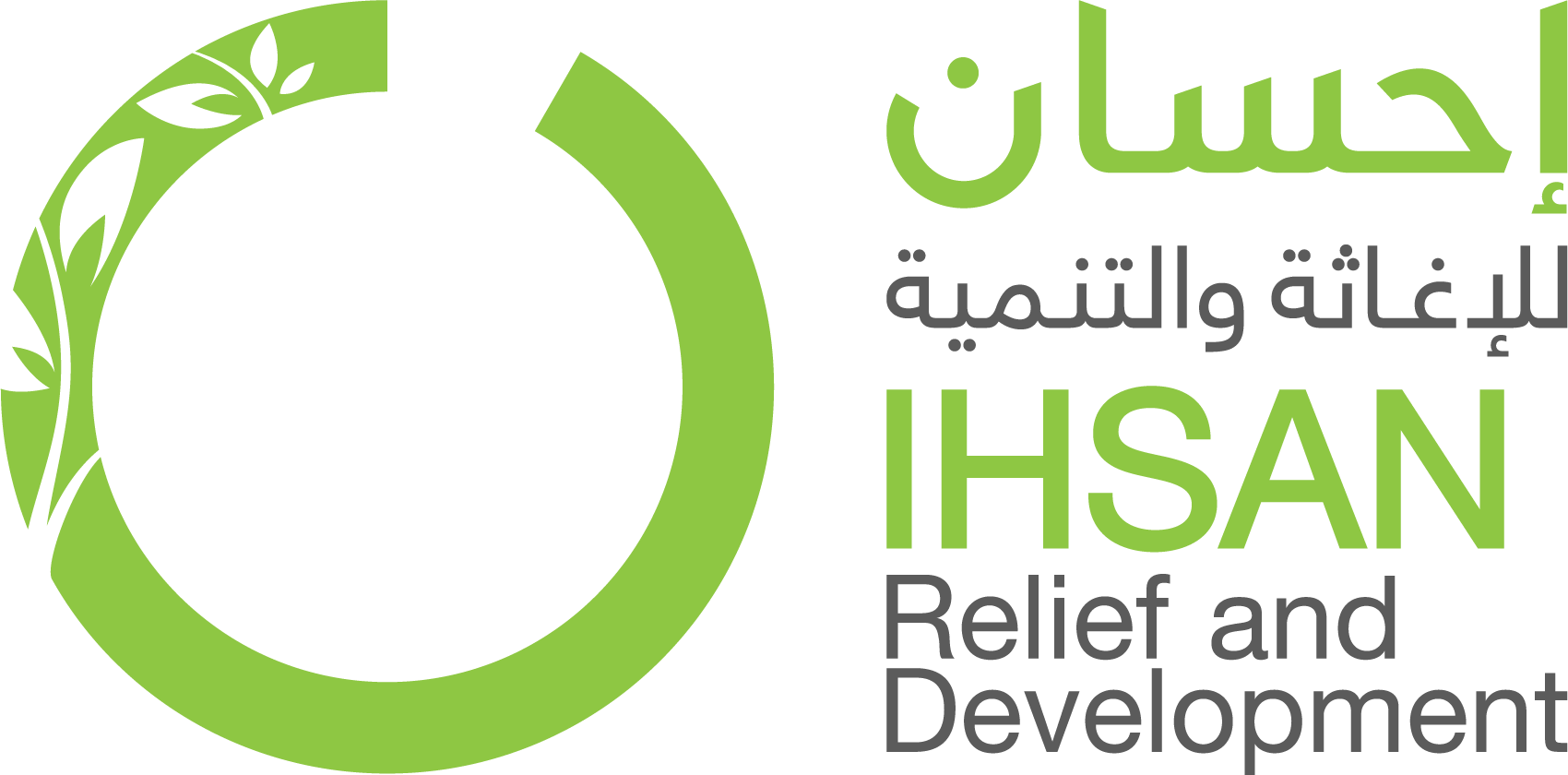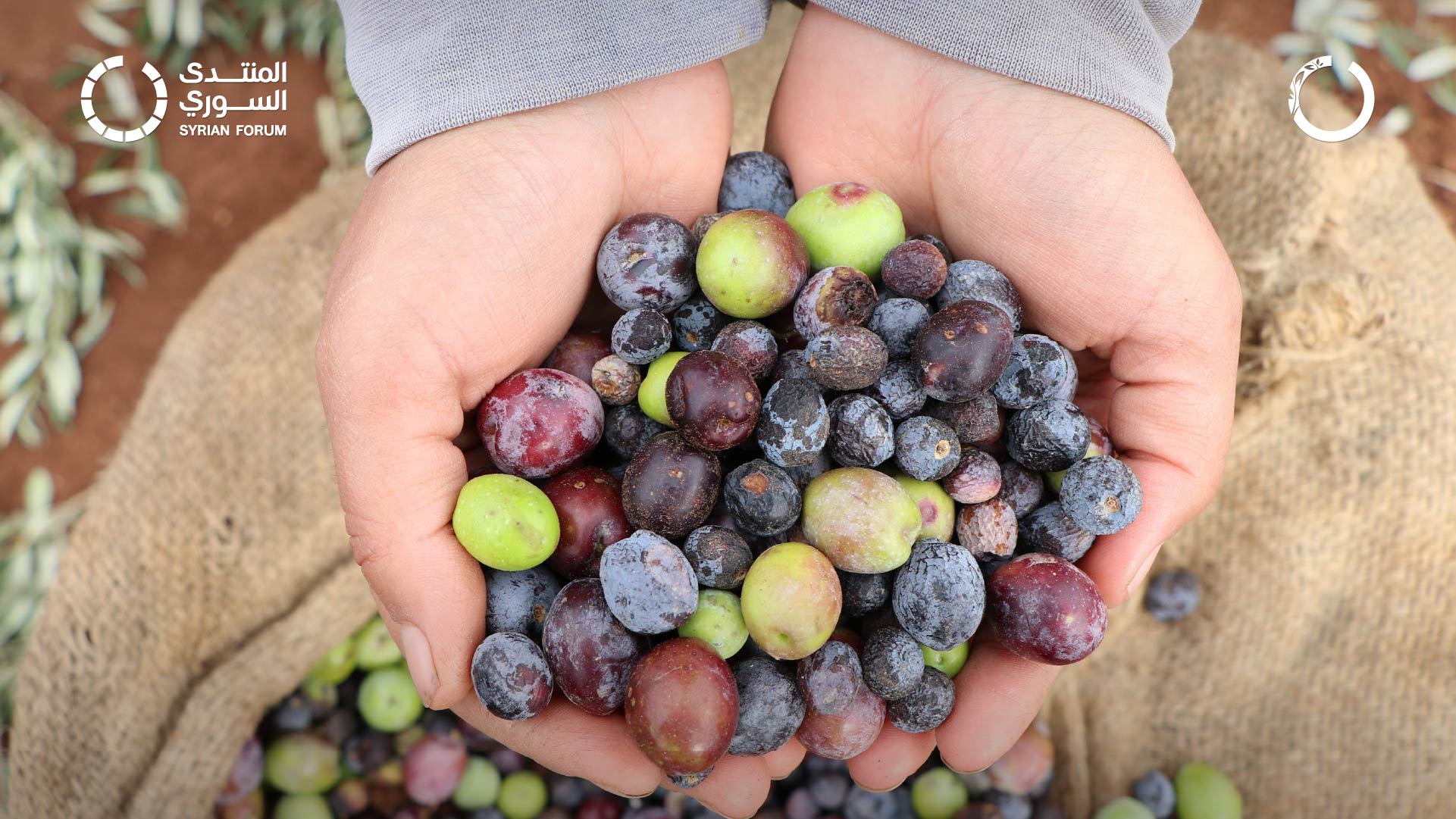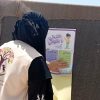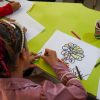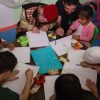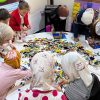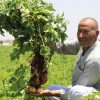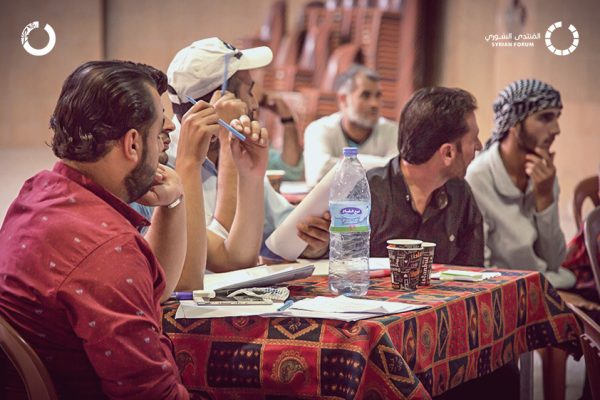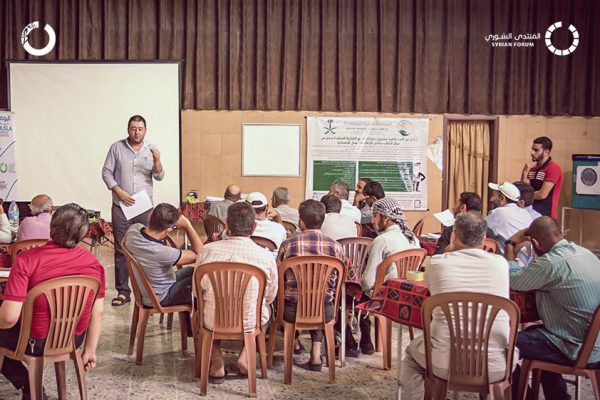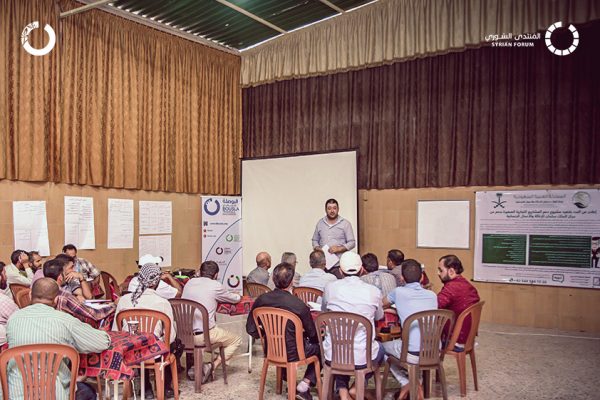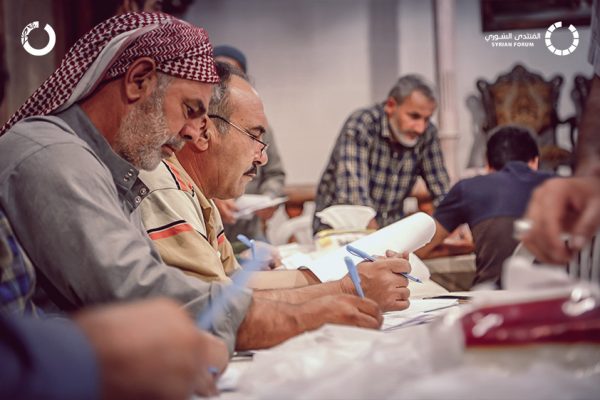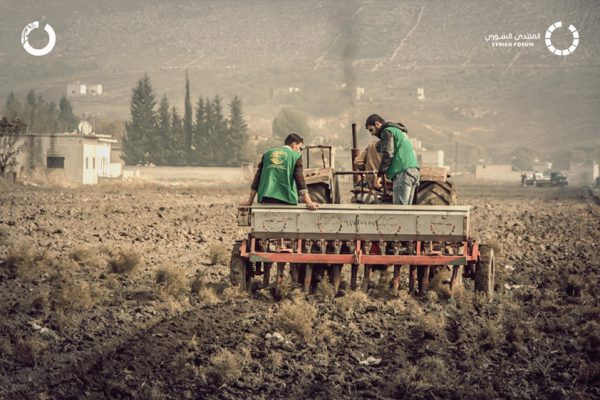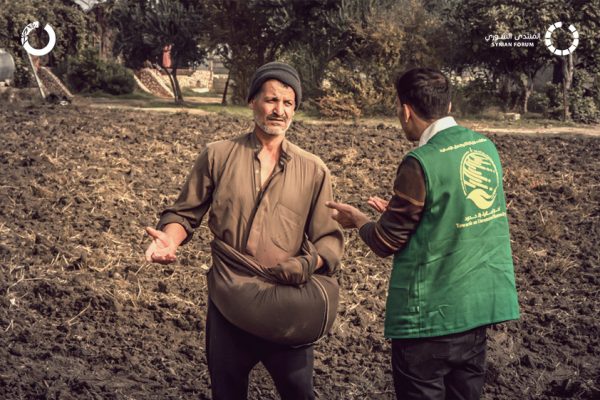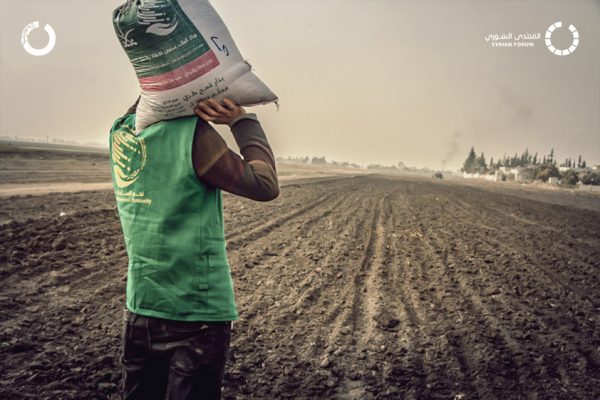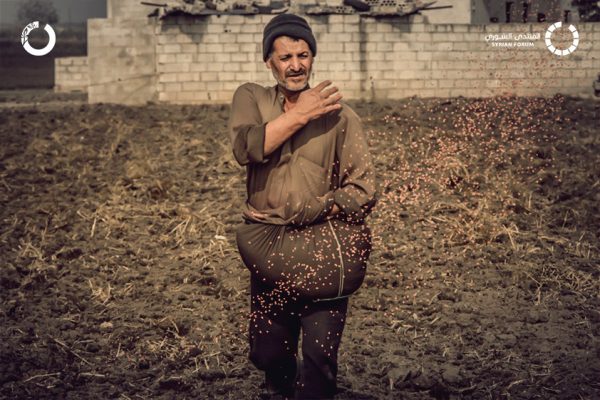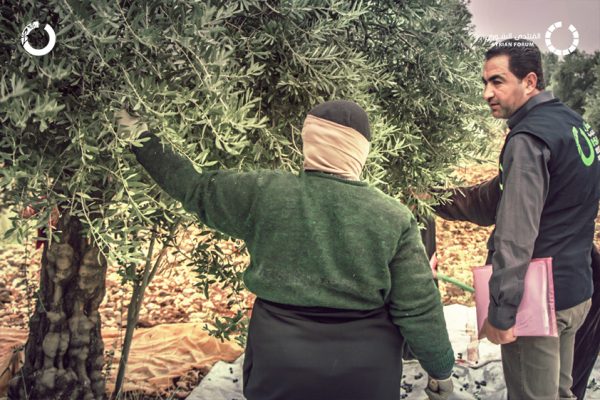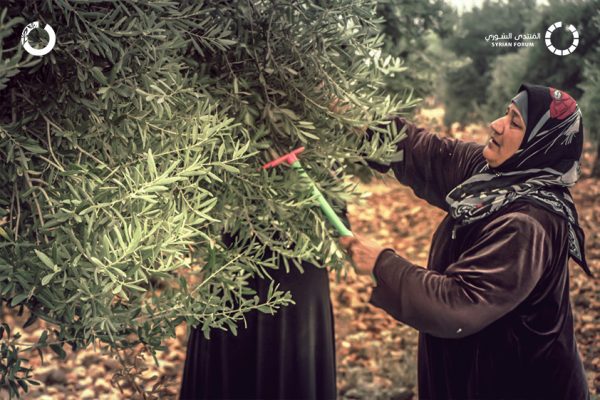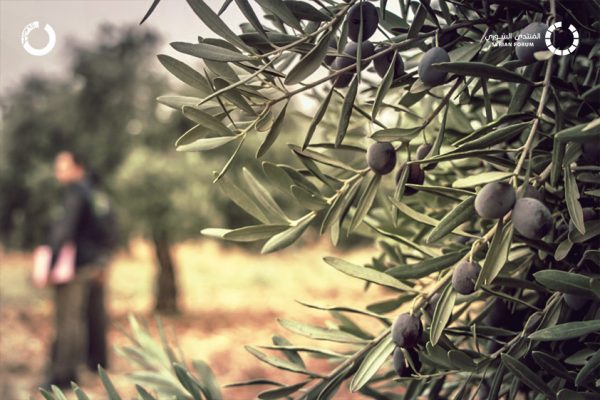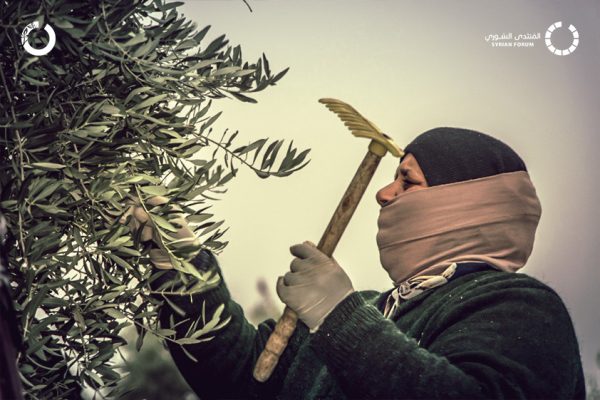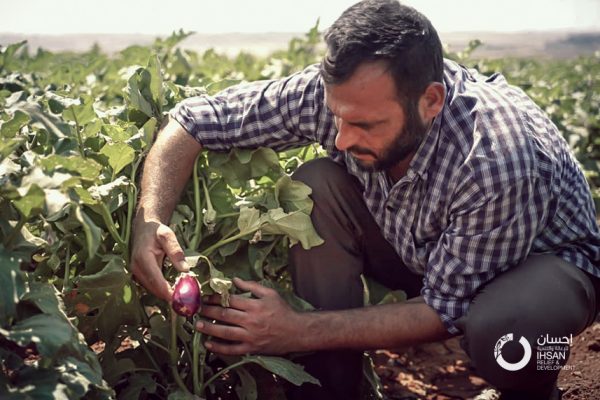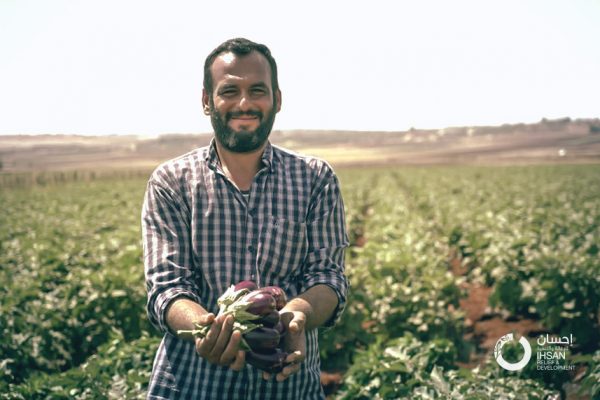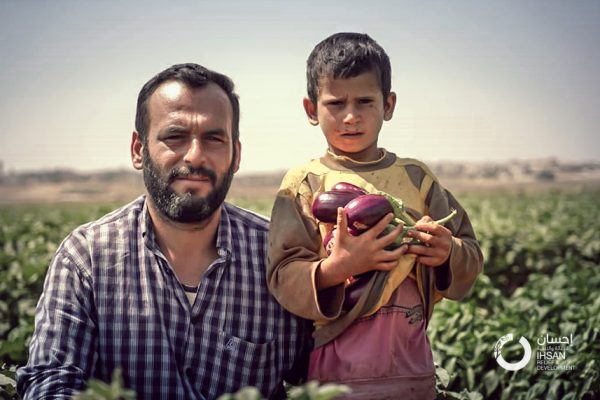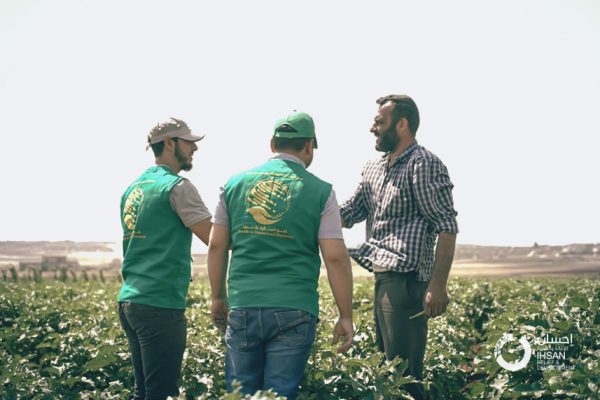In a humble tent sewn from cloth, Samah, 30, lives with her two sisters and brother in the harsh conditions of displacement in western Aleppo countryside.
Samah’s life was completely turned upside down after she lost her parents as a result of the shelling that targeted the city of Sinjar in Idlib countryside, where her family lived, and then Samah found herself responsible on her family, besides the responsibility of taking care of her brother Salim 18 and her sister Samar 19 who have Down’s syndrome since she is the older sister who used to spend time with them, along with her younger sister, Salma, 26.
“We escaped at night from the constant shelling, we couldn’t take anything with us but our old and torn clothes. We headed north till we reached Aleppo countryside, we had no shelter, it was summer and the sun burns like a hell!. I could manage to get a few pieces of cloth and made a tent to become our new home. I had to do whatever it takes to find shelter for me and my family” Samah said.
Samah is the only breadwinner for her family and she works all day during the hot summer and cold winter in harvesting crops to be able to meet the basic needs of her family, and because of her absence at work she was not able to take care of her brother Salim and sister Samar and spend time with them as they used to before the displacement and the death of her parents.
Ihsan Relief and Development, in partnership with the World Food Program (WFP), provides monthly food aid to 34,000 from the most vulnerable families in northern Syria. IhsanRD team reached Samah’s family and provide them with a monthly food basket to help them withstand the harsh circumstances surrounding them.
The monthly food basket they received removed a huge burden of securing food on a daily basis, and now, Samah has more time to take care of Salim and Samar. Samah told us about their hopes that one day they will return home.

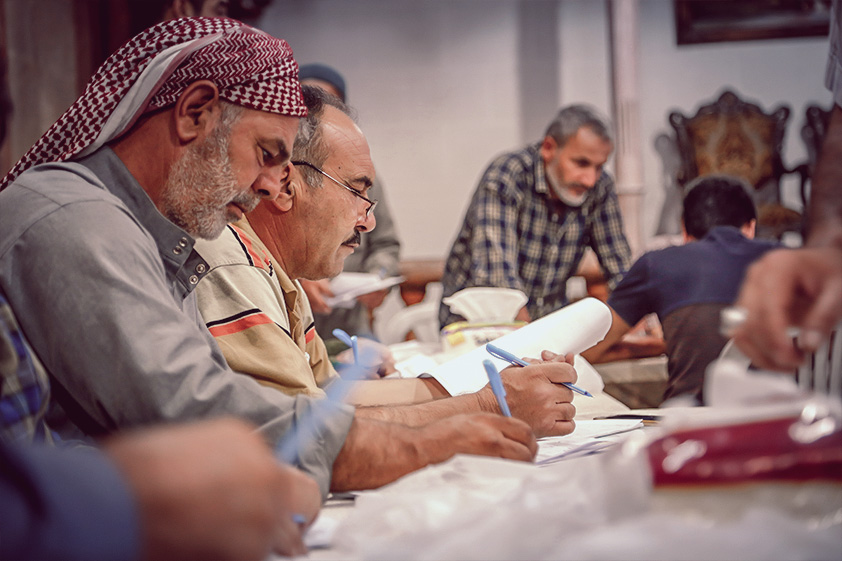
Following-up to the implementation of the Small-Grants Project in the northern countryside of Aleppo, funded by King Salman Humanitarian Aid and Relief Centre.
After collecting the applicants’ requests to the project in Al-Bab and Jarablus cities and verifying these requests to reach the most people in need and eligible beneficiaries who were selected after ensuring that their applications were aligned with the criteria set for this project. The beneficiaries were trained in groups of 25 or 30 trainees to ensure that the idea was well explained and get the best possible result. The training subjects concentrate on project planning and implementation, writing proposals, conducting economic studies of these projects, taking into account the principles of safety and security at work and environmental principles.
Through this training, IhsanRD aims to support beneficiaries in planning and developing their ideas and giving them the opportunity to increase income and achieve sustainability in their future projects. On the other hand, the training courses will support the beneficiaries to apply for subsequent grants to support them for the implementation of their future projects.
The Small-Grants Project is part of many projects funded by KSrelief in several Syrian governorates aimed at strengthening the resilience of the Syrians to face the harsh conditions they have suffered since the beginning of the war, also, aim to transfer beneficiaries from the state of dependence on relief assistance to work and production.

Mamdouh Saleh, 55, from Al Hawash village in Hama countryside.
He and his family with eight children faced harsh conditions because of the war. Their displacement journey from their village continued for three years, where they forced to flee to Atmeh camp near the Turkish border.
When the situation began to stable, Mamdouh returned to the village to find his field barren and lifeless. He had to leave it without cultivation because he could not afford the reclamation costs. He had to work with his daughters in his neighbors’ farms for a living.
Mamdouh found a chance to return to cultivate his field through the Wheat Support Project implemented by IhsanRD funded by King Salman Humanitarian Aid and Relief Centre. He began planting his farm this year after receiving the seeds, fertilizers, and pesticides and the following guidance from the agricultural experts within the project team.
Mamdouh expressed great pleasure and optimism that the cultivation of his land will enable him this year to dispense with the work for others and improve his family’s situation.
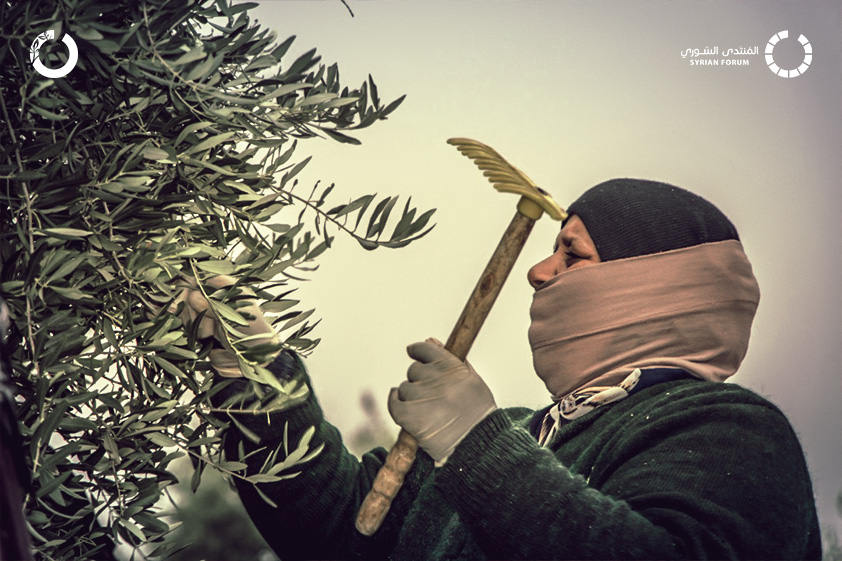
What do olive trees mean to the people of Idlib?
They are not just a source of food, they are a source of pride and a reason for staying.
Learn more about how IhsanRD supports olive farmers and the livelihoods of working women.
The project aims to empower mid-size olive farmers through supporting the value chain of olives trees in northern Syria – Idleb province (Kafar Nobol and Hass) communities, where 600 olive farmers will be supported, each farmer will receive inputs and services such as empty olive oil tin-tank, linoleum sheets pruning scissor and saw, balanced fertilizer. In addition to that, olive harvesting service will be provided by securing 640 women daily workers for harvesting olive trees within Cash For Work program at IhsanRD. The workers were selected from women who are residents or displaced women in this area who have no income and can work. Weakness criteria were considered in the selection of working women who are head of their families or have special needs case within the family.
Also providing autumn tillage, and olive oil analysis service for each farmer with the provision of marketing labels.
Training sessions will be held for 10% of the beneficiaries both theoretical training and in the field in order to raise the level of knowledge and develop the practice of the trainees.
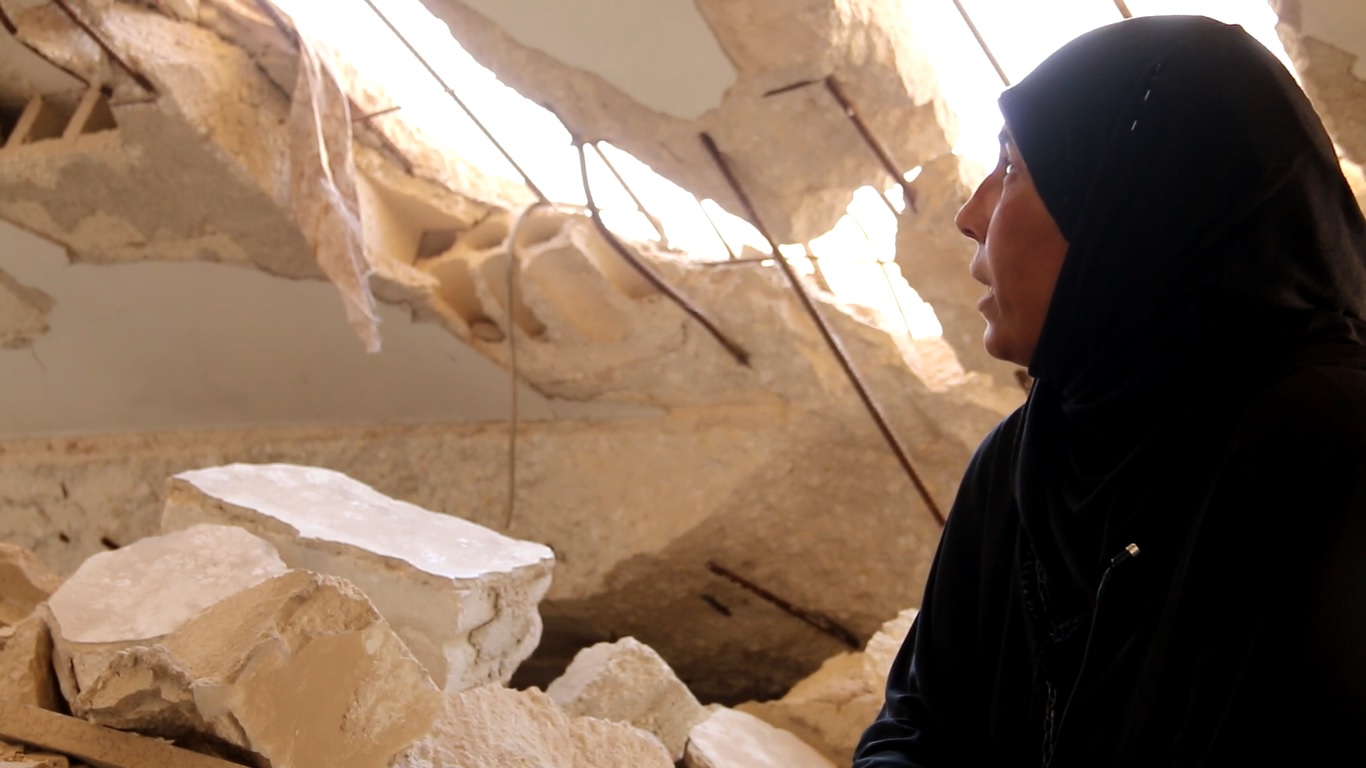
Mrs. Amira fled out with her children from the besieged Ghouta towards northern Syria.
“During the siege we couldn’t afford to live, and couldn’t find anything to eat except for the grass we collect.
Now, I can see happiness on my children’s faces while they having what they have used to eat everyday”.
During the month of Ramadan, Amira was able to bring food to her family and benefit from the e-voucher provided by #IhsanRD.

When you are a father of 6 and your profession is agriculture, the way you feel at harvest time is like the feeling of waiting for your new baby.
Read Musab’s story, who was able to return to harvesting his field with support from an agriculture project in northern Syria funded by KSrelief.
Musab, a farmer and father of 6 children
“I had left farming and abandoned my field with the outbreak of war because of the high prices and costs of agriculture, which led to the low standard of living of my family which faced difficult times.
One day I learned through the announcements of the local council in the town about the project to support the vegetable growing, funded by the KSrelief. And after being accepted as one of the beneficiaries in the project I received all the agriculture inputs from seeds and fertilizers, pesticides and fuel for irrigation and continued farming operations with the team step In a step we listened to the advice they gave us during the training sessions and we came thanks to God to the harvest stage.
Today the land has returned to production. We thank God because the crop was abundant, it secured the home supplies of vegetables and sold the surplus of them”
